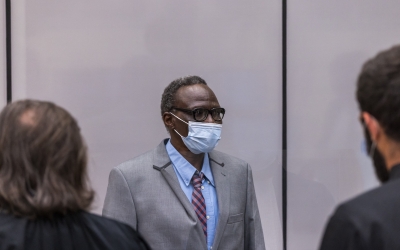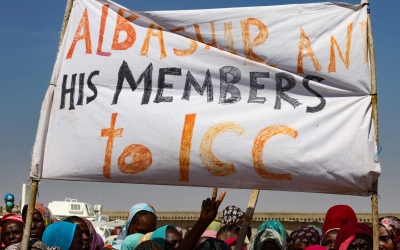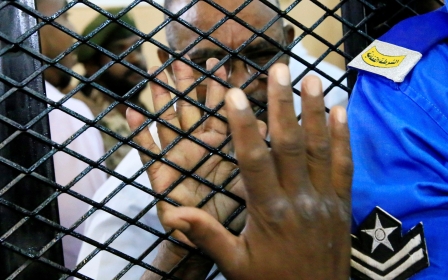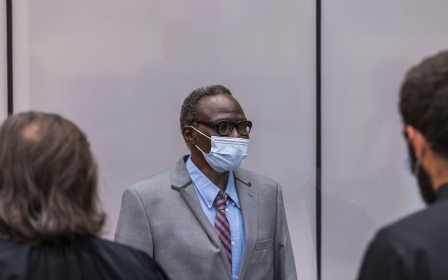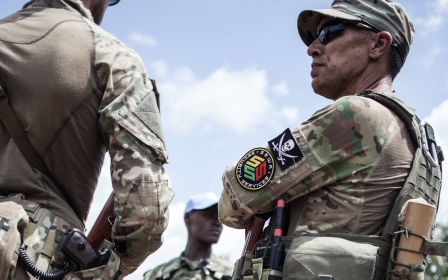Sudan: Survivors recount horrific details of West Darfur violence
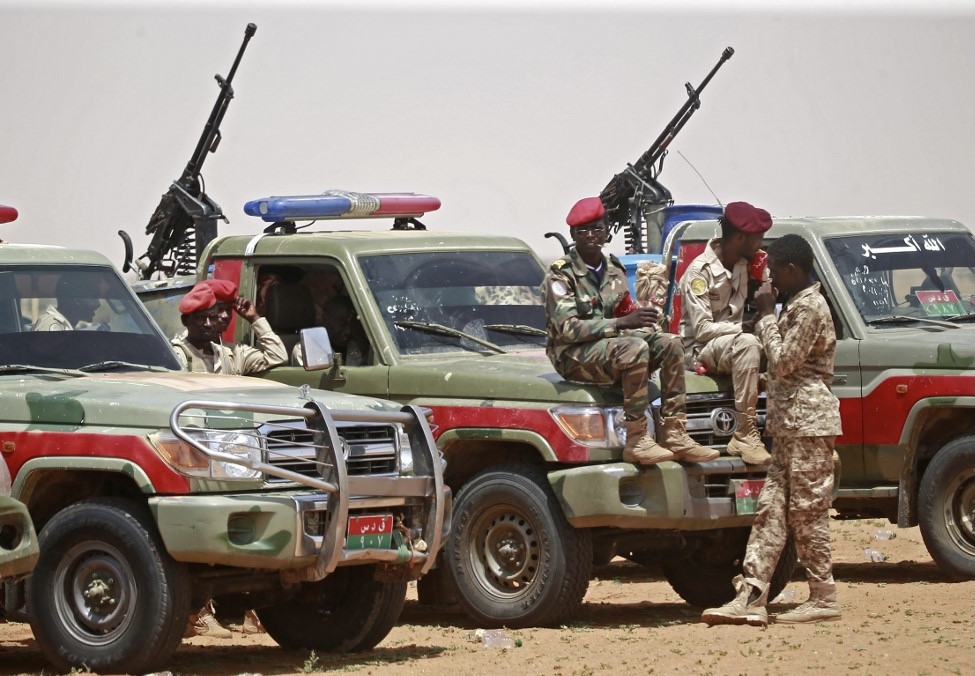
Survivors have recounted the horrific details of the latest bout of deadly violence to hit Sudan's war-torn region of Darfur, where at least 168 people have been killed in fighting between Arabs and non-Arabs over the last five days.
Mohamed Abdullah Khatir, a 60-year-old from the village of Kreinik, told Middle East Eye that his son was among those killed on Friday, after he was shot in the head with a heavy artillery weapon.
"I saw the head of my son explode in front of my eyes as they shot him with a heavy gun while we were trying to flee," Khatir said.
"That was brutal. We saw random killings that we have never seen. They attacked families inside their houses and harassed and beat women, children and elderly people. Mothers hid their children under beds to protect them."
Darfur, which was ravaged by a civil war that erupted in 2003, has seen a spike in deadly conflicts since October which have been triggered by disputes mainly over land, livestock and access to water and grazing.
The latest bout of violence reportedly began on Friday when Arab cattle farmers found two of their relatives dead late on Thursday, near a non-Arab Massalit minority village in Kreinik, which lies some 80km from West Darfur's provincial capital, Geneina.
Witnesses told MEE that a pro-government militia in Rapid Support Forces (RSF) uniforms attacked villages in Kreinik, adding there were also clashes between paramilitaries and the army unit based in the area.
"They looted everything, including the properties, livestock, the market and then burned everything in the village including the stock of flour and food the people were saving for the dry season," Abdo Alzain, 55, told MEE, adding that the attackers wore RSF uniforms and had surrounded the village from three directions.
"We lost everything. We counted 164 bodies so far but a lot of people are still missing. We can't even evacuate the injured to Geneina because of the security situation on the road," he added.
The RSF is commanded by General Mohamed Hamdan Daglo, also known as Hemeti - the de facto deputy leader of Sudan, according to rights groups.
On Sunday, a tribal leader from the Massalit minority described seeing multiple bodies in villages of the Kreinik region. Local media said on Tuesday that at least 168 people have been killed in the violence.
Ethnic dimension
Clashes in Darfur often take on an ethnic dimension as the region's Arab tribes are largely pastoralists while many of the region's settled farmers are drawn from minority groups.
A peace deal was signed in 2020, but since a military coup in October, Darfur has seen violence spike again, with hundreds killed in fighting between herders and farmers.
"We fled to the police station and the army headquarters, but they tracked us there and the police fled and even the army failed to protect us," Salim Adam, 49, told MEE over the phone from Kreinik.
'The numbers of casualties may be more because there are a lot of missing people'
- Ali Abu Talib, doctor at Kreinik hospital
A military source told MEE that army reinforcements had been sent from Geneina to Kreinik, but the situation was too volatile to be contained.
"The military succeeded in expelling the attackers from the area and evacuated some of the injured to Geneina, but the situation is still serious and unpredictable," the source said under the condition of anonymity, as he was not authorised to talk to the media.
"There were many allegations about the nature of the forces that attacked the civilians and an investigation will be opened soon to probe these claims,” he added.
MEE contacted the RSF and the army for comment but had received no answer by the time of publication.
Ali Abu Talib, an assistant doctor at Kreinik hospital, told MEE over the phone that so far authorities had registered 142 deaths and 100 injuries.
"The numbers of casualties may be more because there are a lot of missing people and families buried their dead without an autopsy report," Abu Talib said.
"The attackers raided the hospital and beat the patients and the health workers. They also looted equipment and the medicines in the pharmacy, so the hospital has run out of drugs and the situation is disastrous.
"Because we can't evacuate the injured, there are many critical cases in the hospital."
Clashes spreading
On Monday, the clashes spread to Geneina, with blasts heard around the city and shells hitting some houses, according to three eyewitnesses on the ground who asked not to be named for security reasons.
The Central Committee of Sudan Doctors (CCSD) said in a statement on Monday that at least 10 civilians had been killed in Geneina.
It said that none of the hospitals in the city were operational as health workers were too fearful for their lives to work.
In a meeting of the sovereign council in Khartoum on Monday evening, the government announced it would send military reinforcements to West Darfur over the coming days and that regular patrols and checkpoints would be set up in Geneina and other West Darfur towns.
"We have also ordered a delegation to travel from Khartoum to inspect the situation on the ground," the council said in a statement.
"We will also support the efforts of the local leaders to slow down the situation and begin communal reconciliations," the statement said.
However, political analyst Mohamed Badawi said that the war between the RSF and other parties over resources and power in the region would likely continue.
"The disputes over land and resources as well as power have escalated recently. The RSF has got more money from its participation in the Yemeni war and the former rebels have also got power after they signed the peace deal," said Badawi, a researcher at the African Centre for Justice and Peace Studies.
"This will lead to serious consequences on the security and stability of the region in general."
This article is available in French on Middle East Eye French edition.
Middle East Eye delivers independent and unrivalled coverage and analysis of the Middle East, North Africa and beyond. To learn more about republishing this content and the associated fees, please fill out this form. More about MEE can be found here.


